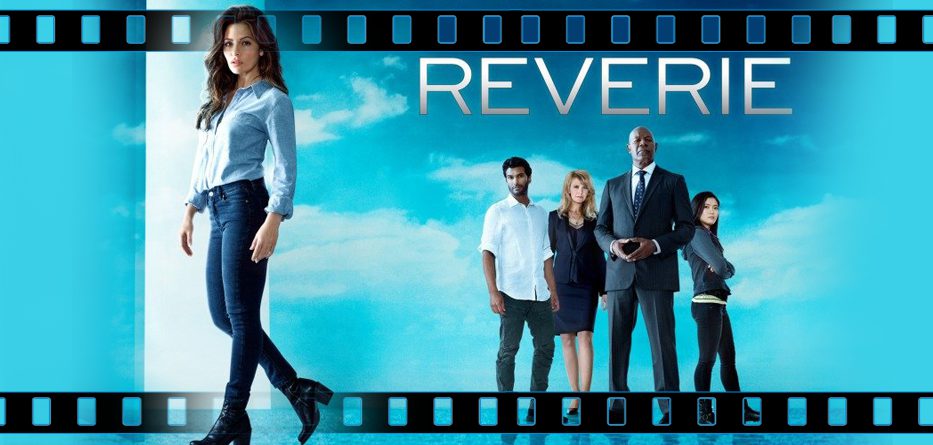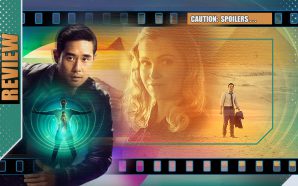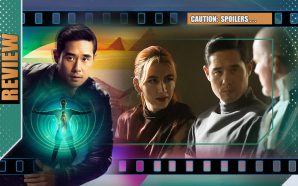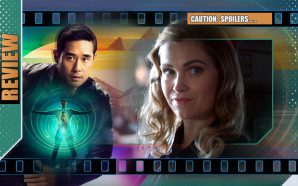News came this week that NBC‘s summertime drama, Reverie had gone to that great Matrix in the sky, cancelled without a second season.
Reverie‘s main problem was that after it’s one-line pitch of ‘Ex-cop helps people stuck in virtual reality simulations‘, the potential was there to take it in any number of interesting directions – and the show did just that… and it really couldn’t pick on one to settle on or explore deeper. Was it a darker-edged Fantasy Island / Quantum Leap in which the patient of the week must be helped to find closure or inspiration, to put something right in their psyche that once went wrong and so return to real life? Was it a show where the government was standing by to use the technology for at-best dubious and at worst wholly-nefarious purposes? Was it a study of the pros and cons of technology itself and how we control it or it controls us? All these matters were ripe for exploring and were in some ways addressed over the show’s initial ten-episode season but often in a way that paid some lip-service to the problem and then lost some momentum as it got distracted elsewhere.
Sarah Shahi made her name in shows such as the under-appreciated Life and the often excellent later seasons of Person of Interest and she certainly brought some depth to Mara Kint, though often the script gives her a reactionary role to events that mainly require a lot of talking. That’s no bad thing for a character who is a trained negotiator but many of the stories only required basic use of such skills and often 2/3 of the episode are about Mara working out new strategies to talk a client out of the VR system after initial attempts fail. Those efforts are sometimes more interesting than others. Mara’s back-story was interesting in the way that one bad judgement call and tragedy – her brother-in-law, Ray, killed his family – changes her life and how, by the finale itself, she learned to move past it and make peace.
Dennis Haysbert continued to add to a list of frowning but benevolent senior-management types, and his ‘Charlie Ventana’ made sure Kate was in safe hands in all states. but Sendhil Ramamurthy always seemed underwritten as Paul Hammond, the morally-reliable programmer and never-quite-love-interest (though at least he didn’t have a Magnumesque moustache like Kate’s actual beau Chris played by Sam Jaegar)
Cold Case‘s Kathyrn Morris was set up as the ‘can-she-be-trusted’ government contact Monica Shaw but ended up as a character who floated in and out of the story-arcs only really making her presence felt in the Black Mandala episode about military black-ops. Jon Fletcher’s duplicitous co-Reverie programmer Oliver Hill asked some pertinent questions about the real dangers of the system he helped create but the show eventually tipped him from clearly-troubled-but-maybe-not-totally-wrong into one-dimensional diabolical bomber mode.
The show’s final episode of the run exemplified the scattershot elements. Any one of the main strands: brother-in-law Ray’s final fate and Oliver’s machinations, the problems with intuitive virtual reality could have had their own climactic episode but instead all three aspects are thrown together alongside the realisation that the show hasn’t really paid much attention to Jessica Lu’s Alexis and crams in details of the events that led her to work on Reverie. Instead of being satisfying, each arc got a ‘Oh, that was solved pretty quickly – on to the next item on the agenda‘ feeling as the story moves on with the feeling or a relay race rather than a marathon.
An interesting show that might well have got a firmer footing and more assured direction with a second run, Reverie was a victim of its Summer scheduling and the trend to give a show a limited chance to gain traction. It was certainly not the best of the crop and the ratings were never stellar, but it’s a shame a second year never became a reality.












